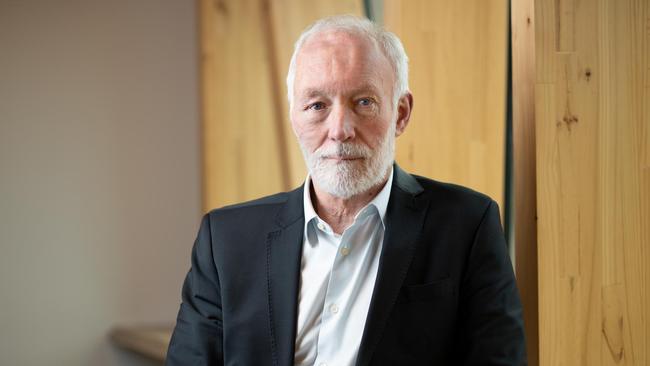Mental health ‘key to Covid recovery’
A mental health expert has warned both the Coalition and Labor that the ‘shadow pandemic’ of mental health must be placed at the centre of the Covid recovery phase.

A mental health expert has warned both the Coalition and Labor ahead of next year’s election that the “shadow pandemic” of mental health must be placed at the centre of the Covid recovery phase to avoid a million distressed Australians falling through the cracks.
Pat McGorry, who will meet Scott Morrison and Health Minister Greg Hunt on Wednesday to press the need for more urgent action, said new data showed that the burden of mental health disease brought about by lockdowns and isolation was now four times greater than the Covid virus itself.
Professor McGorry said it would also endure for years beyond the end of the pandemic.
“The fully justified, yet highly restrictive, measures required to limit the death toll from the pandemic have unleashed a burden of disease many times higher from other health conditions, with mental ill health overshadowing everything else,” the youth mental health clinician and professor of Melbourne University’s mental health writes in today’s The Australian.
He says anxiety and depression alone have surged by more than 25 per cent. “The surge in mental ill health is so marked that it has been labelled by The Economist magazine as ‘the shadow pandemic’.
“Most countries have ignored this … Mental health reform must now be one of the central pillars of the recovery phase from the pandemic, and this must be reflected in the election manifestos of the major parties.”
Professor McGorry, who is also the executive director of Orygen – a youth mental health service based in Melbourne – praised the federal government for early intervention, including emergency helplines, telehealth, pop-up mental health hubs and more resources allocated to strengthen headspace.
“However, these measures have failed to prevent waitlists from ballooning, and a rising tide of young people surging into emergency departments with a nasty cocktail of intense distress, suicidal behaviour, anorexia and complex mood disorders,” he says.
“This is not transient or mild distress but mostly moderate to severe illness.
“This is totally unsurprising, since the mental health system even prior to the pandemic, as the Productivity Commission and Victorian royal commission reports finally exposed, is fragile, fragmented and not built to scale.
“Now it is overrun, and its workforce diluted and exhausted.
“Oases of innovation have certainly been developed by the federal governments in recent years, but a great deal of desert remains, in which the ‘missing middle’, people with more sustained and complex illnesses, languish in growing numbers.
“The No.1 priority is to progressively expand the options for the ‘missing middle’, the million and more Australians with mental ill health beyond the scope and capacity of GPs, high street psychologists and the headspace system.
“Primary care desperately needs an exit ramp and a back-up system which can deliver evidence-based multidisciplinary care.”
Professor McGorry said the federal government needed to drive the reforms, claiming state governments “struggled” to fund acute and serious cases.





To join the conversation, please log in. Don't have an account? Register
Join the conversation, you are commenting as Logout